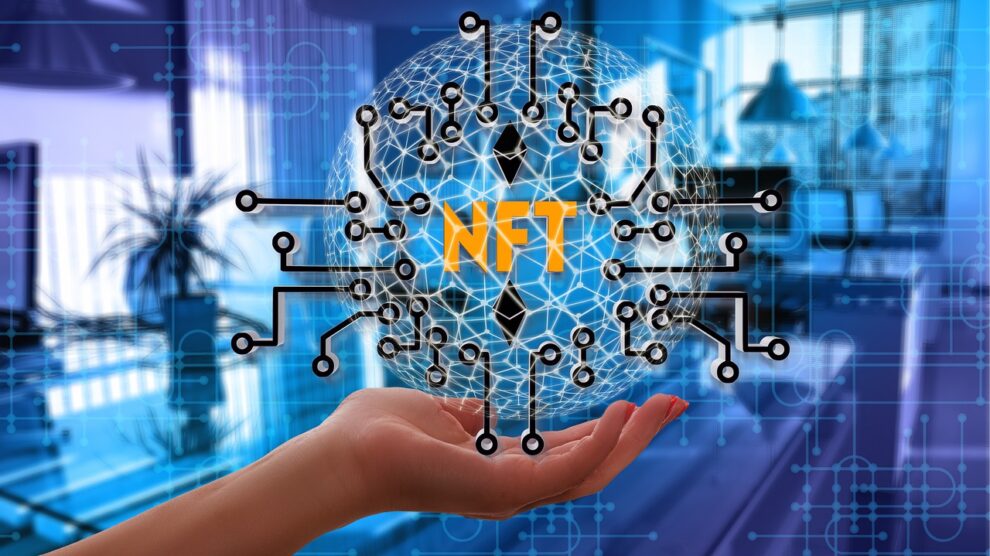What began as a “crypto winter” earlier in 2022 is now officially a “crypto crisis.” While the past few months have been harrowing for cryptocurrency traders, it is essential that we finally separate the technology from the hype. Simply stated: crypto is Web3, but Web3 is not necessarily crypto. The sooner the spotlight on cryptocurrencies fades, the more the public can learn about Web3 — the latest iteration of the internet.
Looking back, we may remember 2022’s crypto chaos as the spark that turned consumers away from unvalidated, “get-rich-quick” altcoins and towards decentralized, peer-to-peer technologies like blockchain and decentralized autonomous organizations (DAOs). But it will not be so-called currencies or Bored Apes leading the way; rather, applications with utility will be the agents of change, and ticketing utilities may be among the most popular.
According to the Pew Research Center, 16 percent of Americans — roughly 52 million people — had created a digital wallet by the end of 2021. Keeping in mind that some people will own more than wallet, a good estimate is that roughly 80 percent of the country is still without a crypto wallet, thus exiling them from Web3 due to technical limitations. What they are waiting for is a “super app” or “super utility” — something which provides clear value that did not exist before.
Many, however, are not waiting. By the end of 2022, the number of US adults who own at least one digital wallet will climb 19% to 33.7 million. That equates to 12.8% of the population, an increase of about 30% in just one year. Any company these days would be over the moon to show that kind of growth, but, to paraphrase the Capital One tagline, we must ask: “What’s in those wallets?” Or, more to the point: “What will be in those wallets next year, and in the years to come?”
One clue comes from early adopter demographics. According to projections, the largest walleted demographic will be adults ages 25 to 34, followed by those ages 35 to 44. The smallest, yet fastest-growing group will be adults ages 65 and over.
Let’s take a look at the first demographic. While live entertainment suffered a serious blow during Covid, industry leader Live Nation predicts that attendance at live events will hit an all-time high in 2022. Leading the way will be giant music festivals like Coachella, Bonnaroo, Lollapalooza and Electric Daisy Carnival, which happen to skew heavily toward the 25-34 demographic.
As for the second demographic, which is largely composed of professionals with established careers, LinkedIn recently polled more than 1,800 marketers responsible for corporate events across 13 countries. Of these marketers, 85% had held a virtual event last year and 28% said that between 90-100% of their events are now virtual.
For both of these groups, Web3-native, NFT ticketing could easily be the “super utility” that inspires them to create — or expand — a digital wallet. The wallet holder would purchase an NFT token on the blockchain, which contains their ticket to an event — be it virtual, in-person, or hybrid — due to the advantages NFT tickets have over paper or “standard” digital tickets. For one, they can be bought and sold peer-to-peer over an encrypted, decentralized blockchain. Additionally NFT tickets cannot be physically lost. Moreover, these NFTs will automatically embed utilities like early entrance, VIP status, merchandise and food delivery, as well as exclusive invites to after-parties, among other things.
So what about the final group, those 65 years and over? According to Pew, adoption of key technologies among those in the oldest age group has “grown markedly” since just a decade ago, and the technology gap between the oldest and youngest adults has narrowed significantly. Older Americans’ presence on social media, for example, has grown approximately fourfold since 2010, to 45%. Although they were slow to get on Facebook, once they realized that their kids and grandkids were there, the AARP crowd jumped on board. A similar phenomenon will happen when they learn that they can get a super-ticket NFT for that anniversary cruise faster and cheaper than over the Internet — and with more benefits.
It’s unfortunate that cryptocurrencies and NFTs have generated so much negative publicity of late, but the first iteration of the internet had its share of bad press and missteps, as well. Back then, it seemed far from certain that we would all be connected one day, or that the internet would be good for anything besides playing basic video games and scanning digital encyclopedia pages. In 1995, David Letterman famously ridiculed Bill Gates for suggesting that the internet had utility.
How the times have changed. Letterman’s new show was ironically born on the internet, and someday soon, we will be purchasing tickets to his show — as well as many others — via NFTs.





